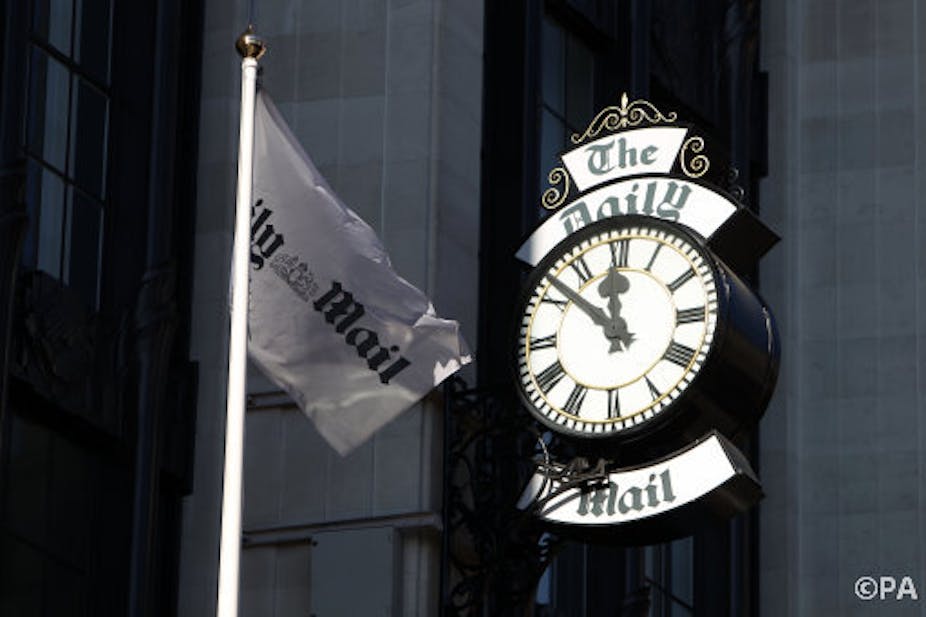The Daily Mail has launched a petition which strongly urges prime minister David Cameron to “divert some of the £11 billion a year spent on overseas aid to ease the suffering of British flood victims, and to build and maintain flood defences to prevent a repetition of this crisis”. The petition has received over 200,000 signatures, and more are pouring in.
The campaign has attracted high profile supporters: Jilly Cooper has been quoted as saying, “We give millions of pounds in aid to India and China and never spend on our own. It’s ridiculous.” The Mail’s web page lists various aid projects and recipients (including flood victims in Pakistan and Mozambique), pointing to failed projects, corrupt governments, and well-feathered aid agencies. The message is clear – there are British people in dire need, some of our aid money is going to increasingly powerful and competitive countries, while the rest is frittered away on failing projects or stolen by corrupt elites.
Responding to the Mail’s campaign, David Cameron has insisted that money will be no object in responding to the floods, and that as a wealthy country, Britain does not need to cut into its aid budget to support those affected or to develop future flood protection. But in the coming days and weeks, it won’t just be the inhabitants of Somerset and the Thames valley who’ll find it hard to weather the storm.
The argument against aid is a seductive one, and is hugely popular with many Tory MPs and members of the public. Supporters of foreign aid have always had to confront compelling arguments that “charity begins at home”, and the combination of a period of national austerity together with visually dramatic events causing suffering to thousands of British citizens has once again raised this quite legitimate question. The Mail has also successfully tapped into a number of serious concerns that have long haunted the world of aid; after all, ensuring efficient, effective and accountable development outcomes for poor people in poor countries is no easy task. Like many scholars, I am critical of many of the interests and agendas that are pursued through aid, in both donor and recipient countries.
Even so, the Mail’s campaign is misguided at best, pernicious at worst, drawing on and stoking a set of myths and distortions. Perhaps most problematically, the campaign diverts attention from other practical and moral imperatives exposed by the unprecedented storms – in particular, climate change.
The truth about aid
Lets start with the Mail’s grim assessment of foreign aid’s success. There is an element of truth to some of its concerns, but rather than support efforts to find more effective and accountable approaches to poverty reduction and humanitarian relief, the Mail would simply axe this budget. It seems trite to observe that no matter how awful the consequences of the UK storms and flooding are for British farms, households and businesses – and they are awful indeed – unlike the victims of similar events in many other parts of the world, British people are relatively unlikely to lose their children to disease in the aftermath, or to be left to repair their lives completely uninsured with little or no state support.
With these circumstances still regularly befalling the citizens of vastly poorer countries, we need to provide better aid, not no aid. At the same time, as the Daily Mail has itself reported, Britain and other donors are already rapidly pulling out of China and India – not least because these rising powers will no longer tolerate what they more and more see as the demeaning position of aid recipient.
But if the petitioners are not persuaded by moral arguments around differential degrees of human suffering, they might be swayed if they knew more about the value of aid to the UK economy. The British aid budget provides substantial support to UK-based consultancies and businesses (including, I should add, the occasional academic researcher). The aid budget subsidises the costs of hosting refugees in the UK (something not lost on the Mail), and it pays the pensions of retired colonial officials. Most of DFID’s large contracts go to UK companies, while the aid budget also supports British military operations (help for heroes?). The list goes on.
In other words, the UK aid budget stimulates the British economy and jobs, and this is only likely to grow as DFID increasingly embraces a growth-oriented and private sector-led vision of development. Supporting trade and investment in ways that are profitable to British companies, and perhaps even the Treasury, is increasingly the order of the day. Leaving aside the question of whether or not this is the best way to achieve poverty reduction, the fact is that aid is far more beneficial to the British economy than most people realise.
The Mail’s campaign should not be dismissed out of hand. It raises some hard truths, and some genuine moral dilemmas. But it relies on a partial and sanitised understanding of foreign aid, and continues to frame it as (misguided) charity that simply pours money down the drain. Besides focusing exclusively on the failures of aid and not its achievements, this misses the substantial direct and indirect benefits that aid – rightly or wrongly – returns to its donors.
But more importantly, with its mean-spirited and parochial call to end international aid, the campaign refuses any possibility that we might connect more closely to those Mozambicans and Pakistanis who have also endured horrendous flooding. The world is facing global threats and needs global solutions. The Daily Mail would have us neither acknowledge our responsibilities (in the form of our greenhouse gas emissions) nor do anything about the well-established consequences for others. The terrible flooding should inspire us to solidarity, and to collective action: pulling up the drawbridge is no solution.

